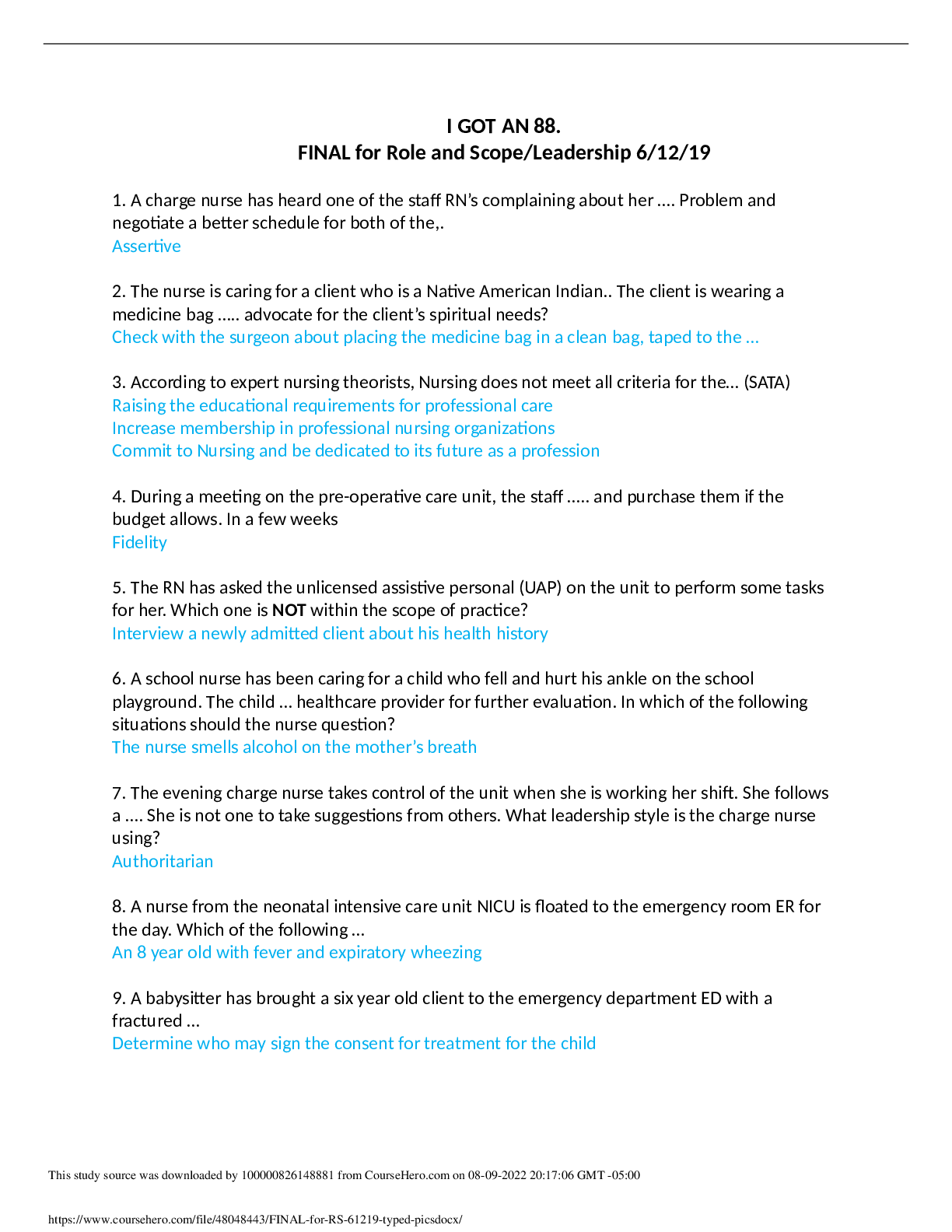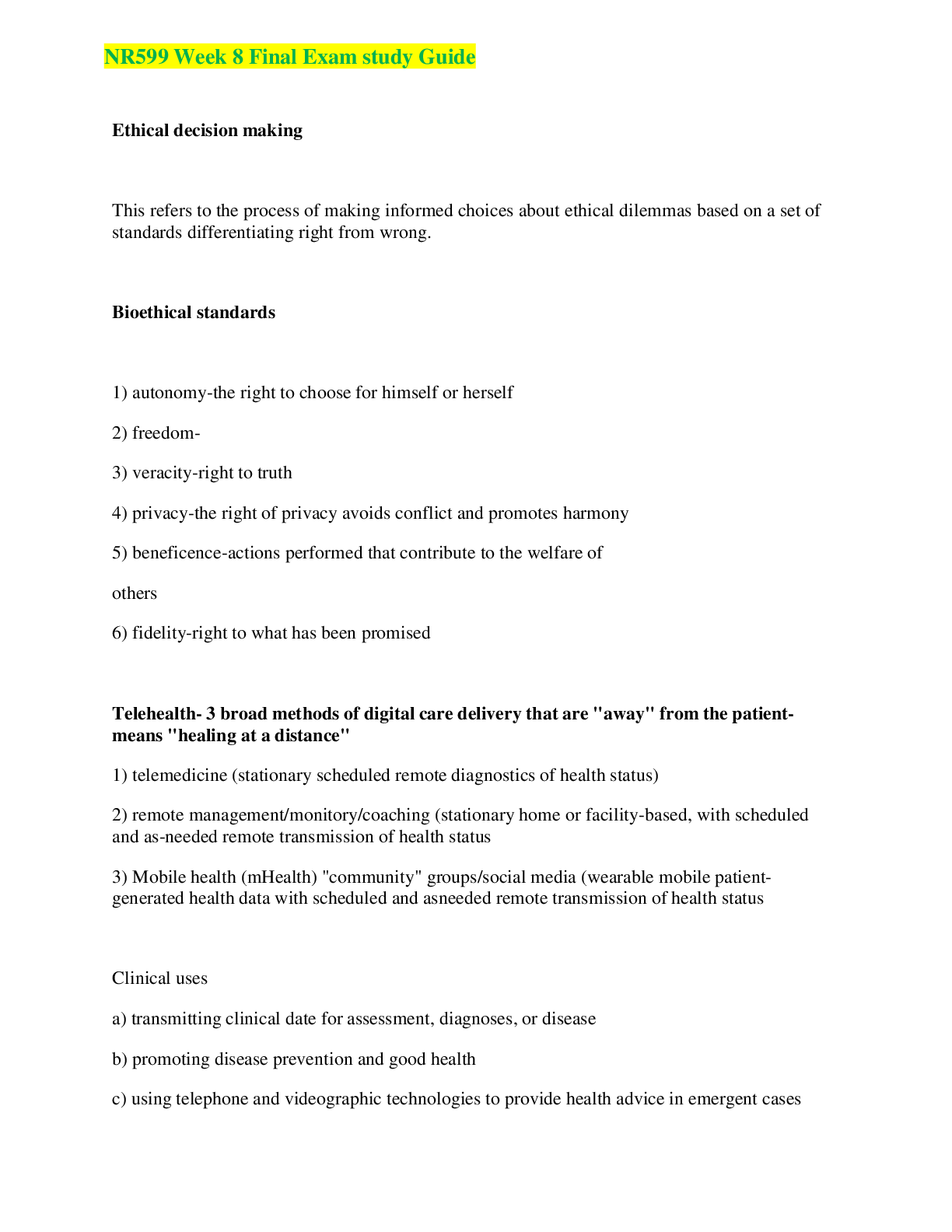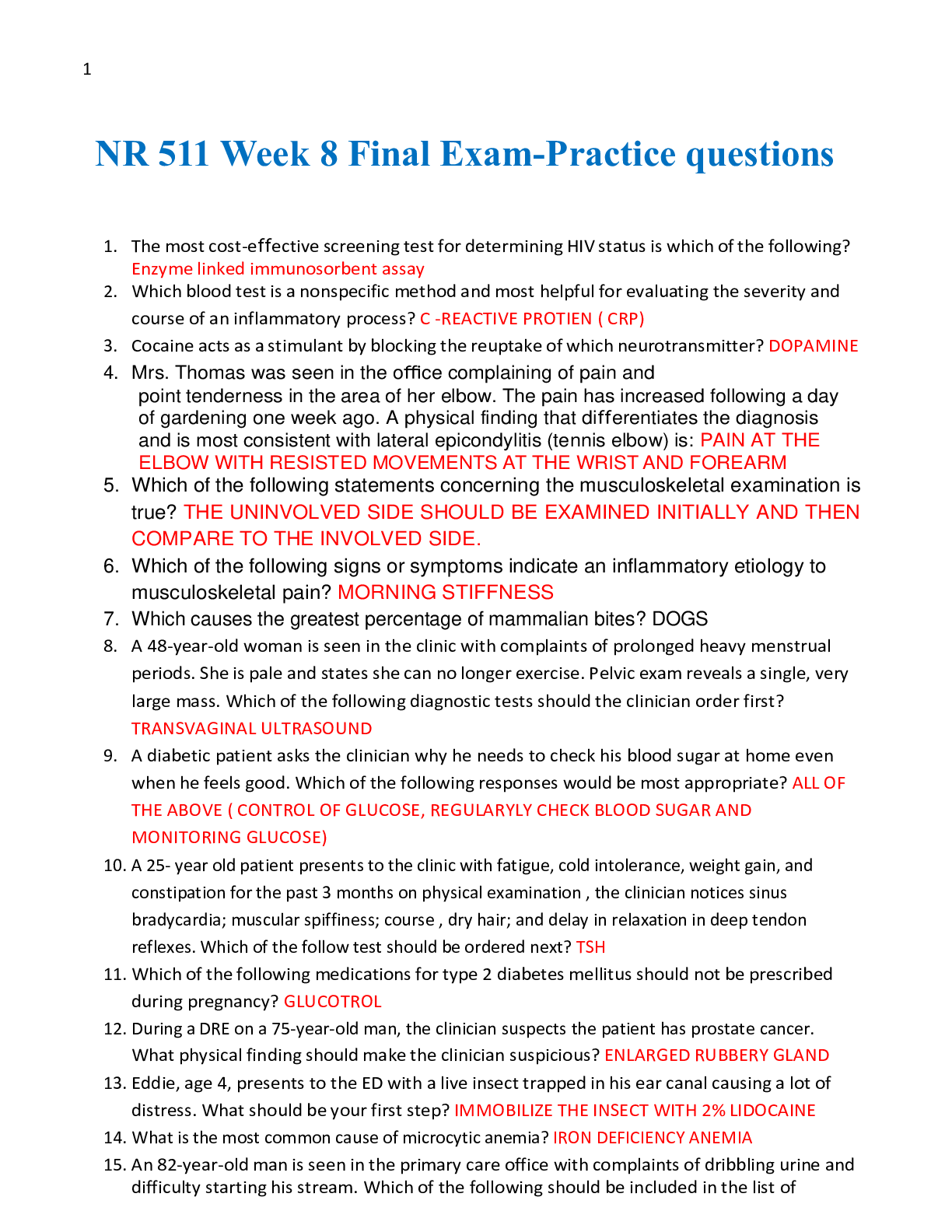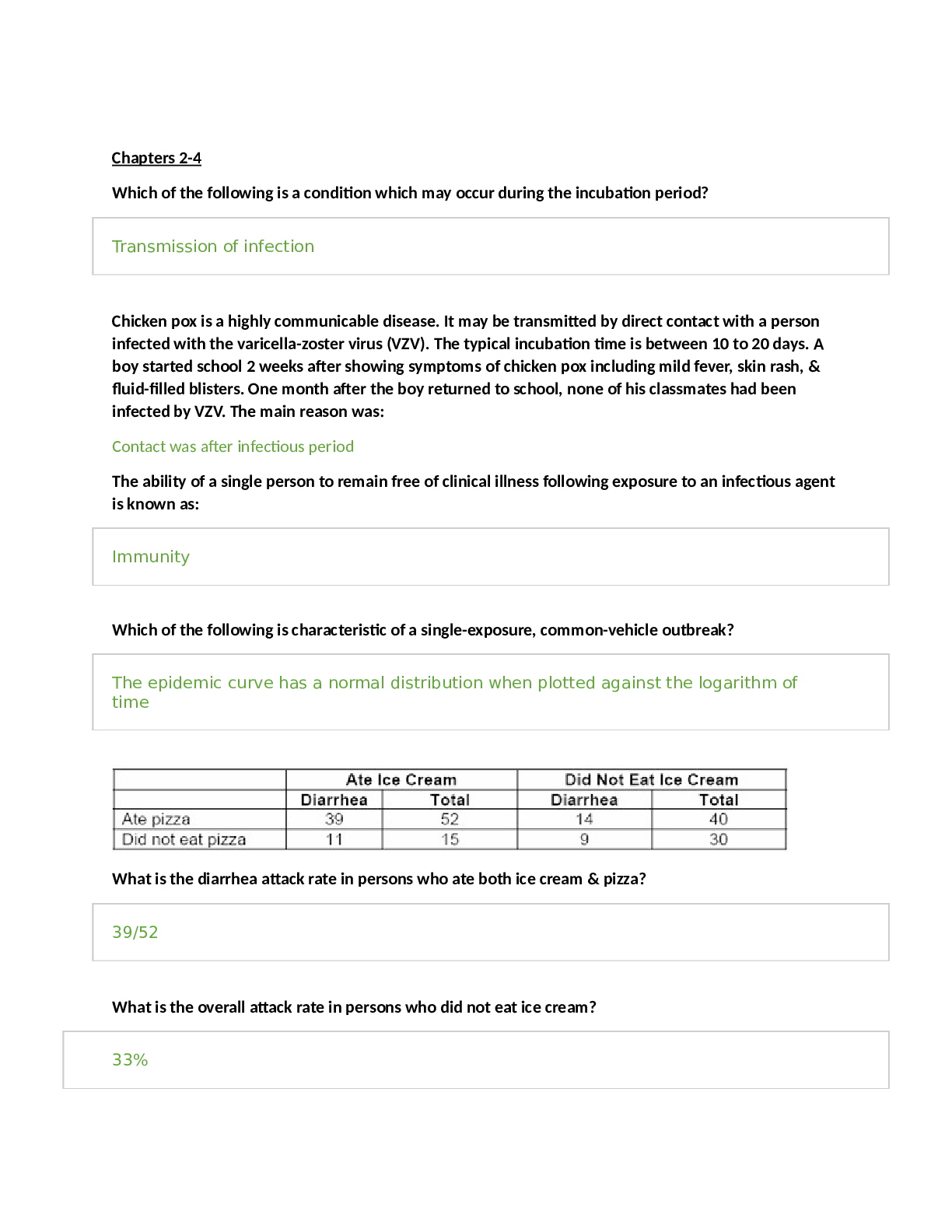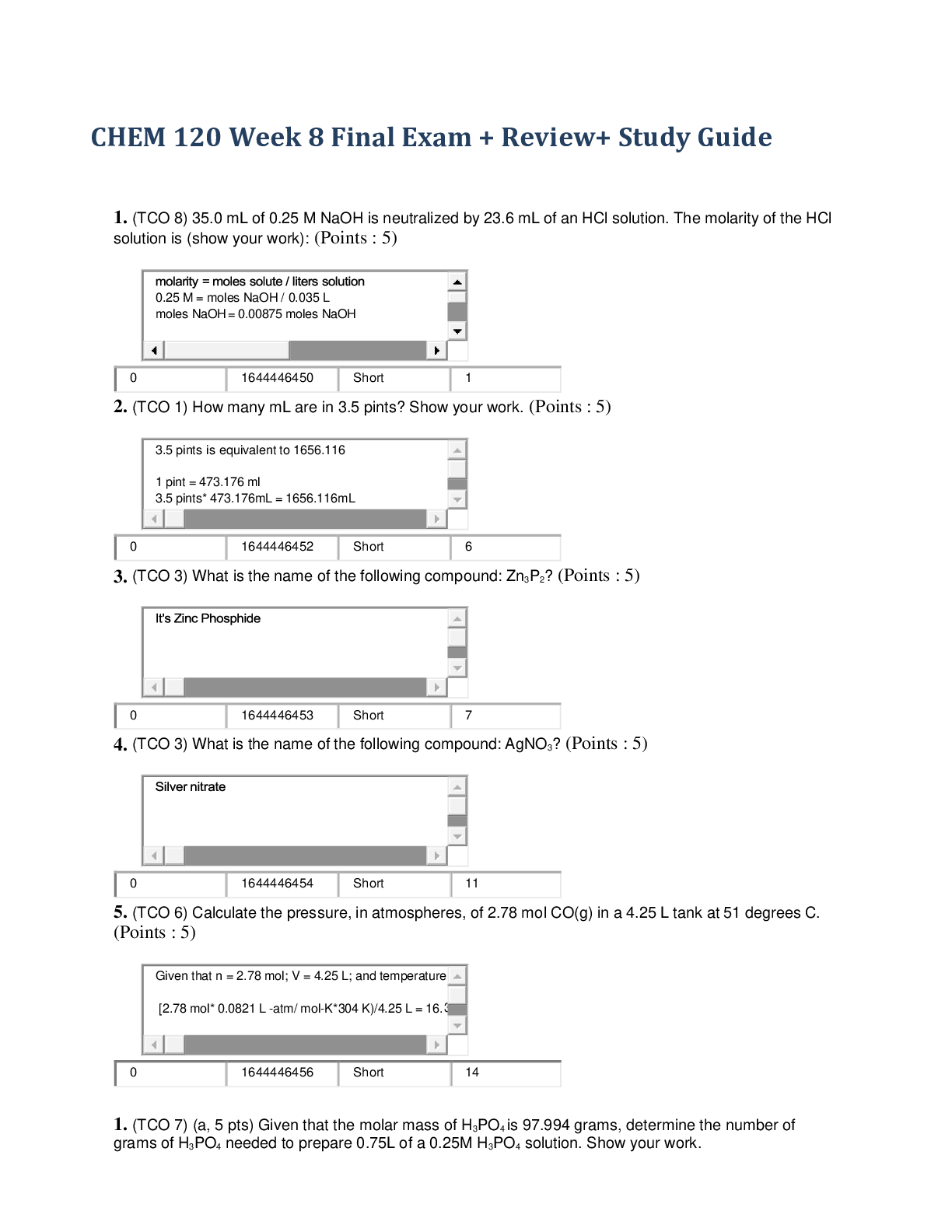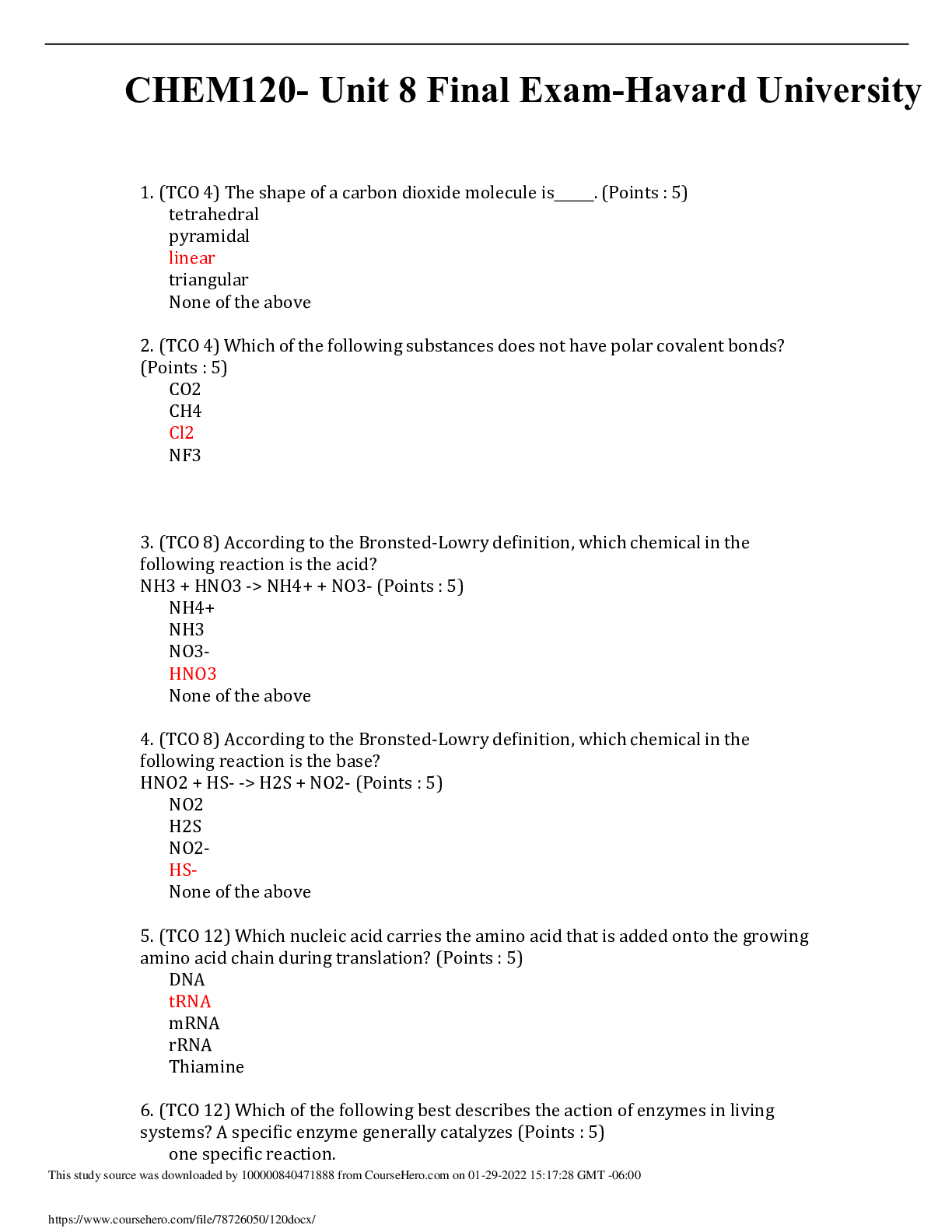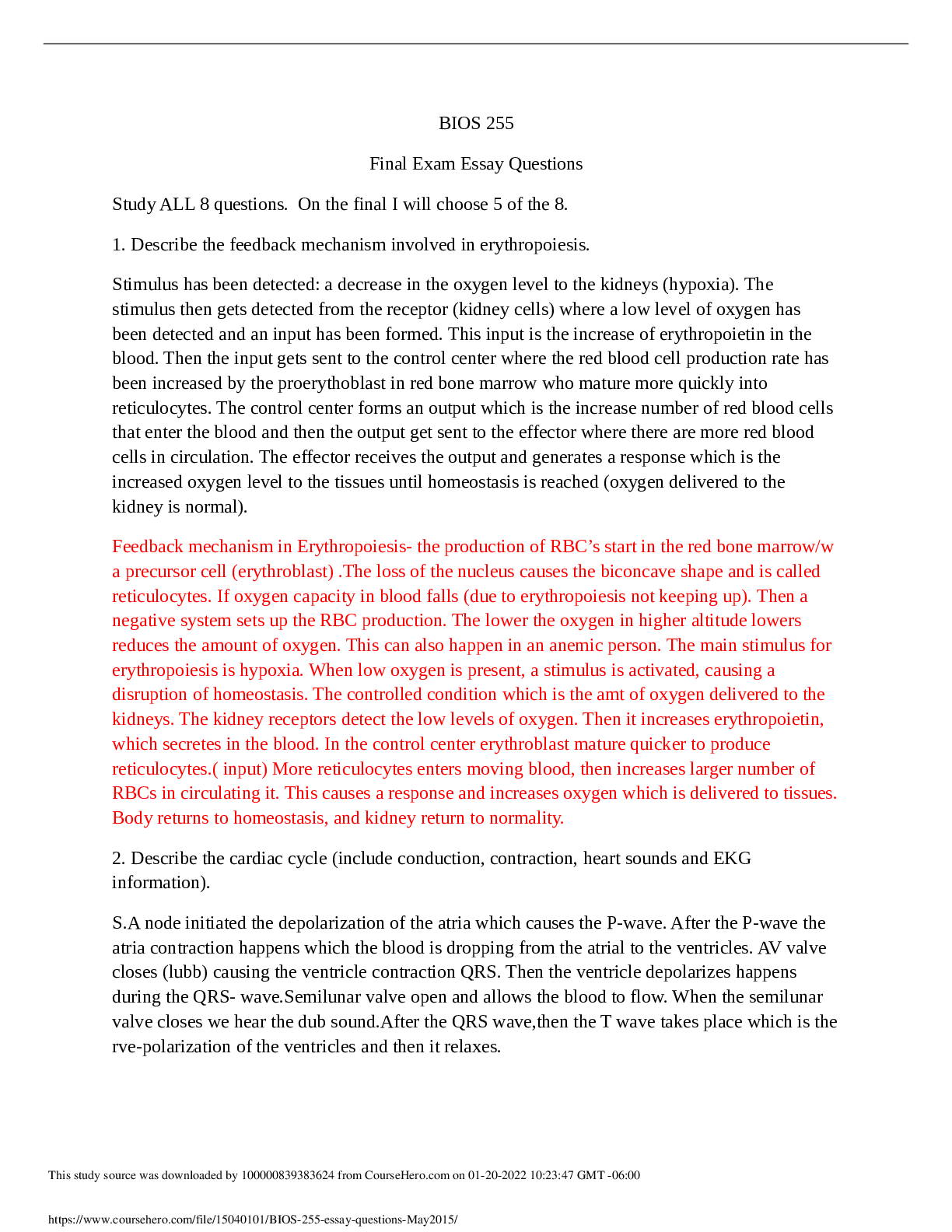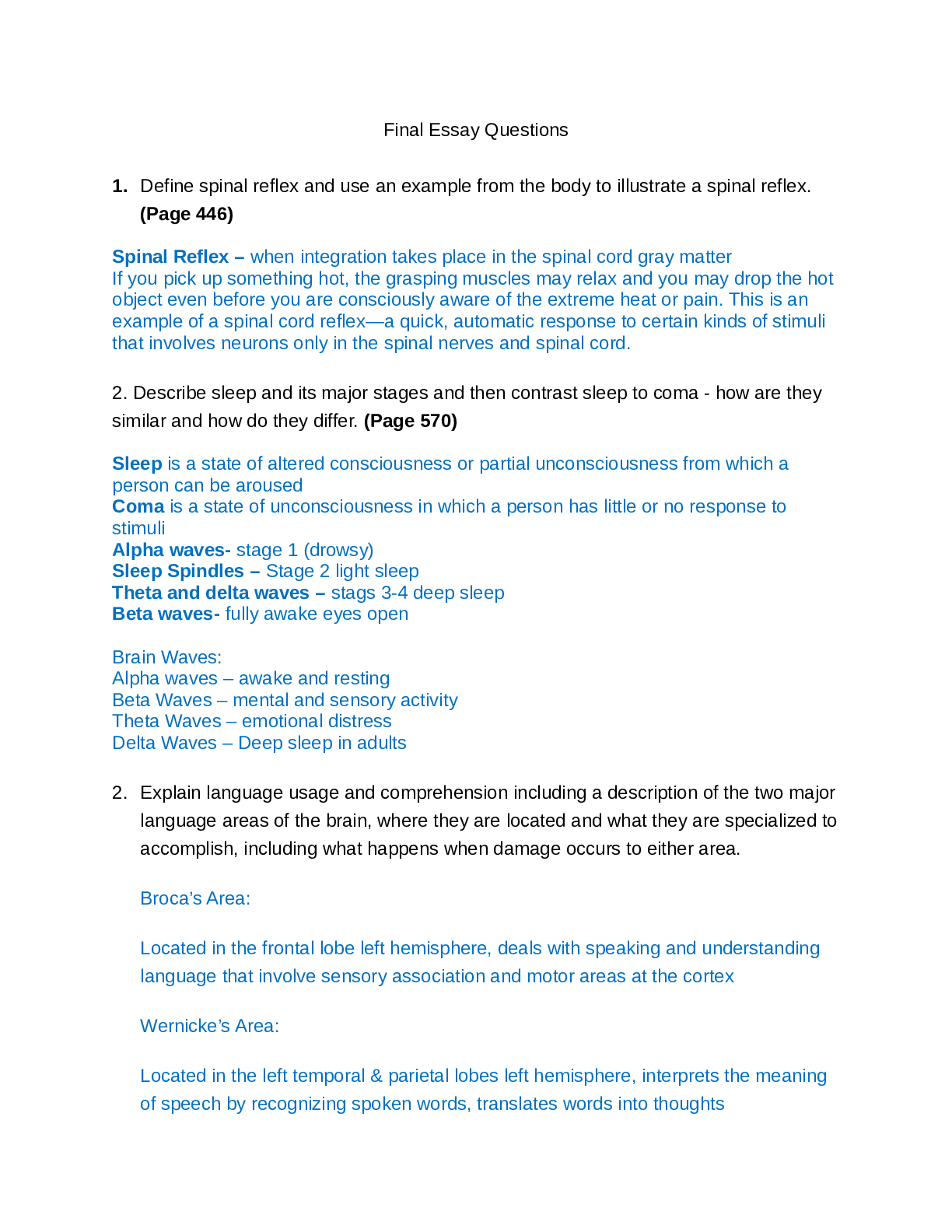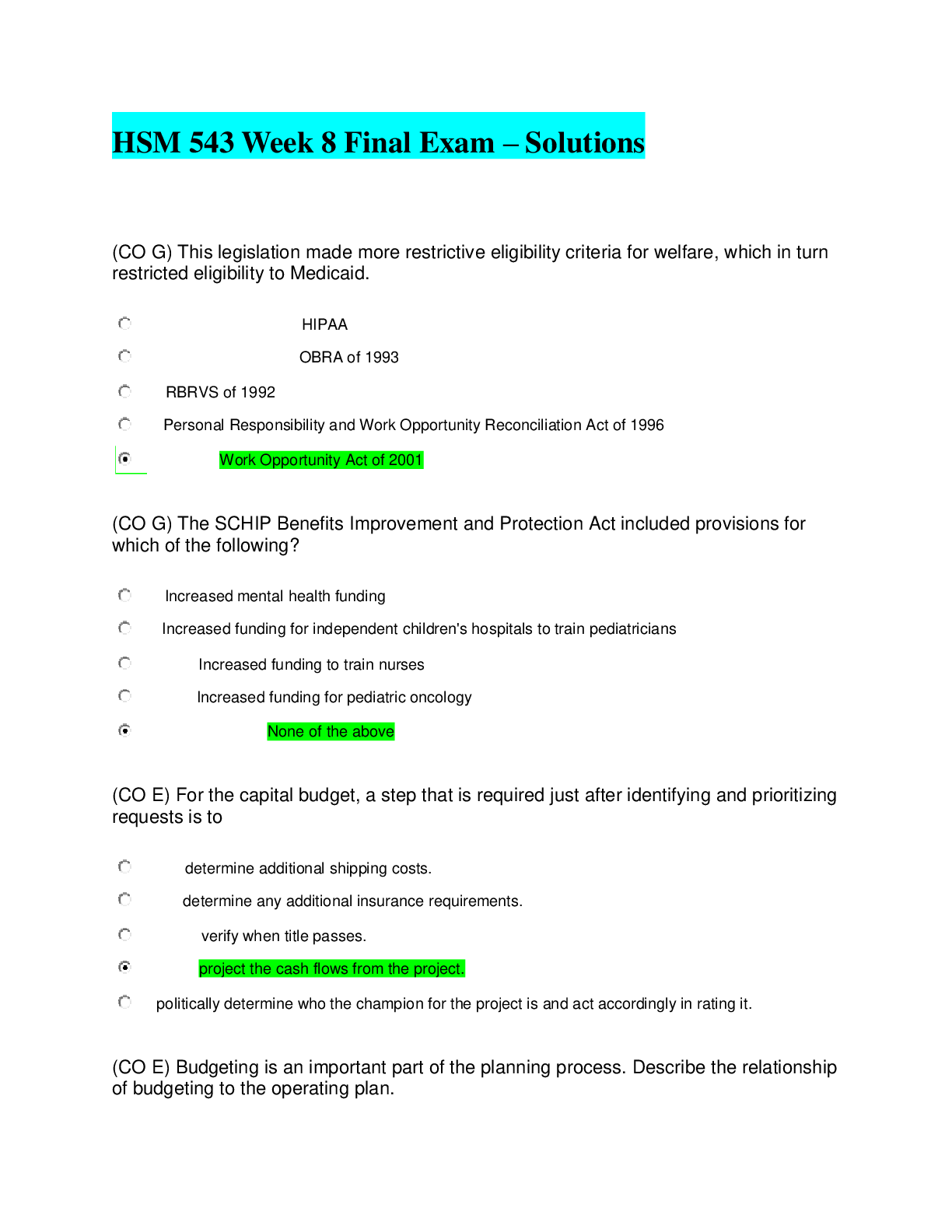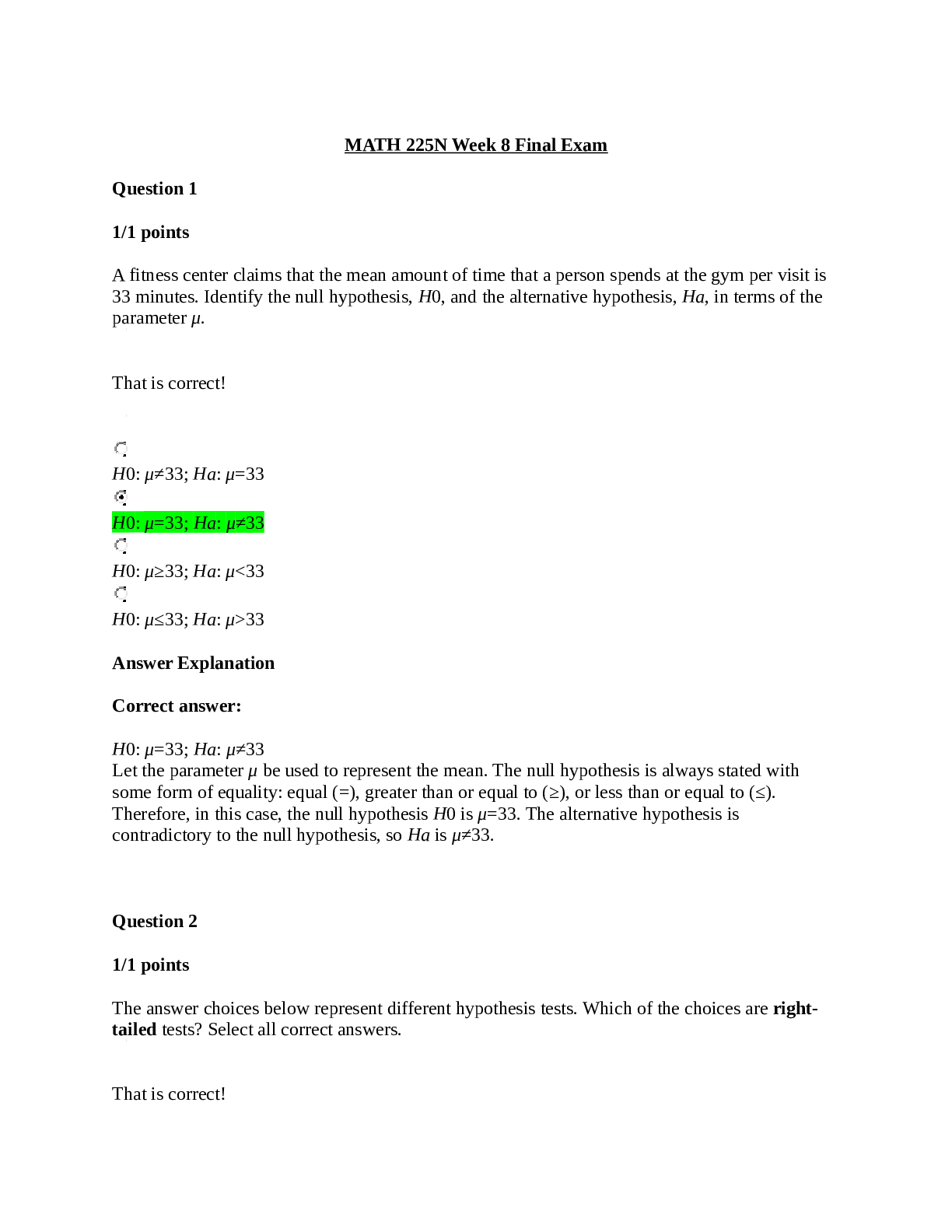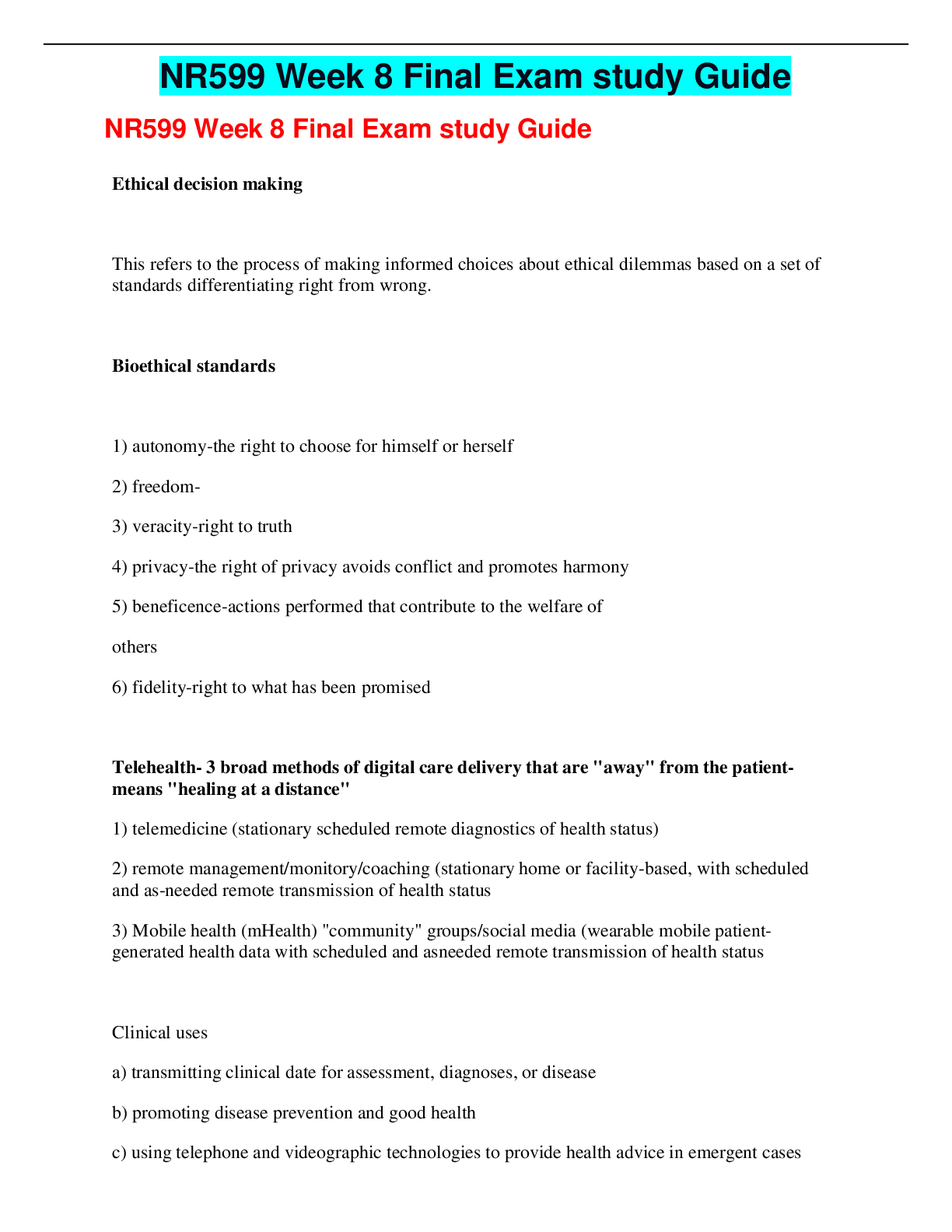Social Sciences > EXAM > Devry University, Chicago-SOCS 325 Week 8 Final Exam (Version 1)_100%_Correct_Solutions_Graded_A (All)
Devry University, Chicago-SOCS 325 Week 8 Final Exam (Version 1)_100%_Correct_Solutions_Graded_A
Document Content and Description Below
SOCS 325 Week 8 Final Exam (Version 1) Question 1.1. (TCO 8) As the Ojibwa people of Grassy Narrows found out, the symptoms of methyl mercury poisoning mimic the effects of: (Points : 5) Question 2.... 2. (TCO 8) Which of the following is not part of the UN Development Programme's Human Development Index? (Points : 5) Question 3.3. (TCO 8) What does the HDI (Human Development Index) measure? (Points : 5) Question 4.4. (TCO 8) Ulrich Beck argues that the driving force behind the risk society can be characterized by which of the following statements? (Points : 5) Question 5.5. (TCO 8) The chapter concludes by saying that in order to construct a dialogic rationality of risk, we need to cultivate: (Points : 5) Question 6.6. (TCO 8) Which of the following arguments contradicts the risk society theory? (Points : 5) Question 7.7. (TCO 9) The most important feature of the Carnivalesque body is: (Points : 5) Question 8.8. (TCO 9) Which of the following expresses the values and assumptions of patriarchal ecology? (Points : 5) Question 9.9. (TCO 9) Forever interacting and exchanging with the natural world is the most important feature of the: (Points : 5) Question 10.10. (TCO 9) The chief philosophical contribution of the Sophists in environmental discussions was: (Points : 5) Question 1.1. (TCO 9) Who made the following statement: "In wildness is the preservation of the world"? (Points : 5) Question 2.2. (TCO 9) "Human are part of nature and need to maintain a sense of balance and limits in an interconnected world." This statement best describes which paradigm? (Points : 5) Question 3.3. (TCO 9) Which of the following statements is TRUE? (Points : 5) Question 4.4. (TCO 9) Approximately what percent of urban land is currently under cultivation? (Points : 5) Question 5.5. (TCO 9) Of the world's food supply, approximately what percent is grown or produced in urban areas? (Points : 5) Question 6.6. (TCO 10) Which of the following phrases best characterizes the tragedy of the commons? (Points : 5) Question 7.7. (TCO 10) Which of the following is meant by double politics? (Points : 5) Question 8.8. (TCO 10) The A-B split is: (Points : 5) Question 9.9. (TCO 10) American pedestrians and bicyclists are killed at ________ times the rate of German pedestrians and cyclists. (Points : 5) Question 10.10. (TCO 10) What is participatory governance? (Points : 5) 1. (TCO 1) Now that you have almost completed this course in environmental sociology, please describe what you think an environmental sociologist does. What have you learned about what an Environmental Sociologist does since you started this course? (Points : 10) Question 2.2. (TCO 2) Give a few examples of how capitalism has caused inequality in minority populations. (Points : 10) Question 3.3. (TCO 3) A number of social phenomenon discussed in this course vie as the leading cause of environmental problems: overconsumption of products, the problem of collective action, the Western ethos, population growth, social inequality, and uneven development, to name a few. Which do you feel is the most important, and why? Justify your answer sociologically, using detailed facts and figures from the course readings and any outside sources. Compare and contrast how these environmental problems impacts socioeconomic status and influences good and bad. (Points : 30) Question 4.4. (TCO 4) Discuss the pros and cons of using the term invironment instead of environment. What is the difference between environment and invironment? Be sure to provide an example of each and an example of how they connect. Compare and contrast how this relates to consumer products and services derived from the environment. You should focus on both human and environmental health. (Points : 30) Question 5.5. (TCO 5) The development of a natural conscience depends upon the sense of a realm free from the pollution of social interests-a natural other, from which we may gain a sense of a natural me. But is such a realm possible? Can there be a moral realm that is truly free of social interests? Explain. Compare and contrast how we can still keep a free market, Capitalistic system without destroying our environment. How can we still have a free market and Capitalism and still maintain a sustainable society? (Points : 30) Question 6.6. (TCO 6) The public health and environmental movements are sometimes at odds with each other. Why is this, the case? What might be done to improve the situation? How does this relate to the role of producers and marketers in selling goods and services in a capitalist society? Compare and contrast how this relates to green businesses and our society's ever increasing focus on being more sustainable. (Points : 30) Question 7.7. (TCO 7) The author of your textbook states that, "the principle scholarly contribution of the book is the concept of ecological dialogue." Briefly explain what is meant by ecological dialogue and give an example or illustration. How can ecological dialogue be used to solve such complex issues in Environmental Sociology such as exploding population growth, degradation of our natural resources, poverty, debt, and hunger? Compare and contrast these various ways to solve these issues and future issues in Environmental Sociology. (Points : 30) [Show More]
Last updated: 1 year ago
Preview 1 out of 10 pages

Reviews( 0 )
Document information
Connected school, study & course
About the document
Uploaded On
Nov 02, 2020
Number of pages
10
Written in
Additional information
This document has been written for:
Uploaded
Nov 02, 2020
Downloads
0
Views
54

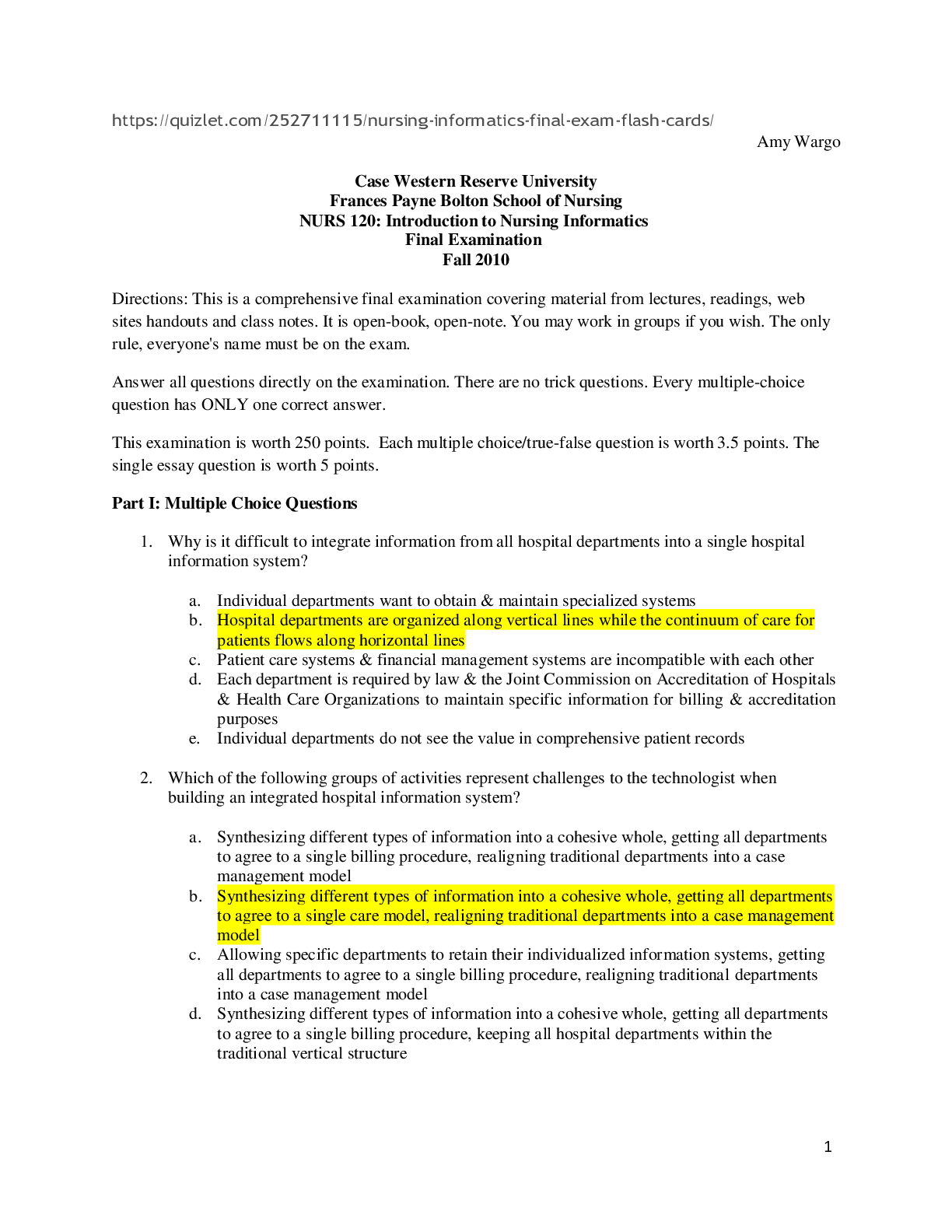

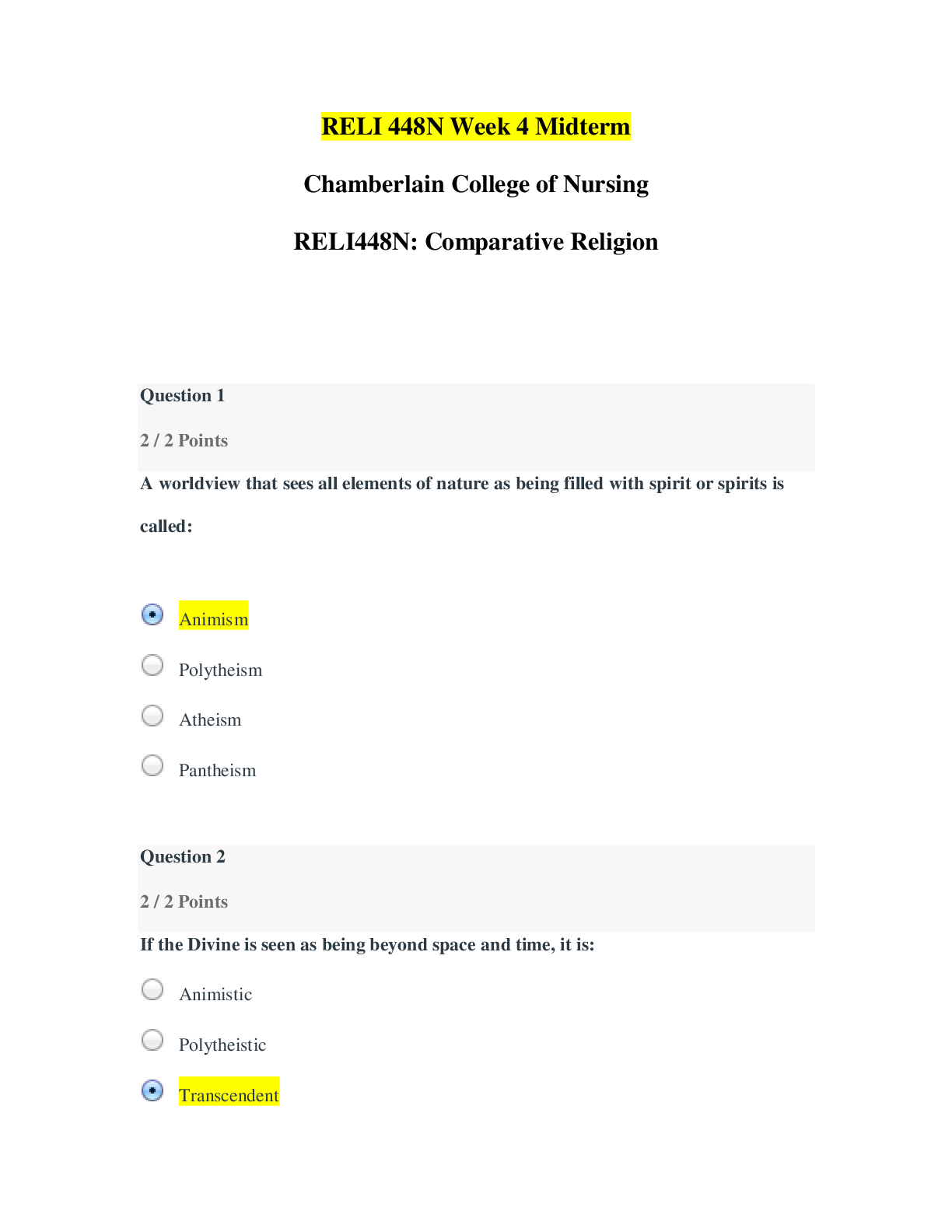
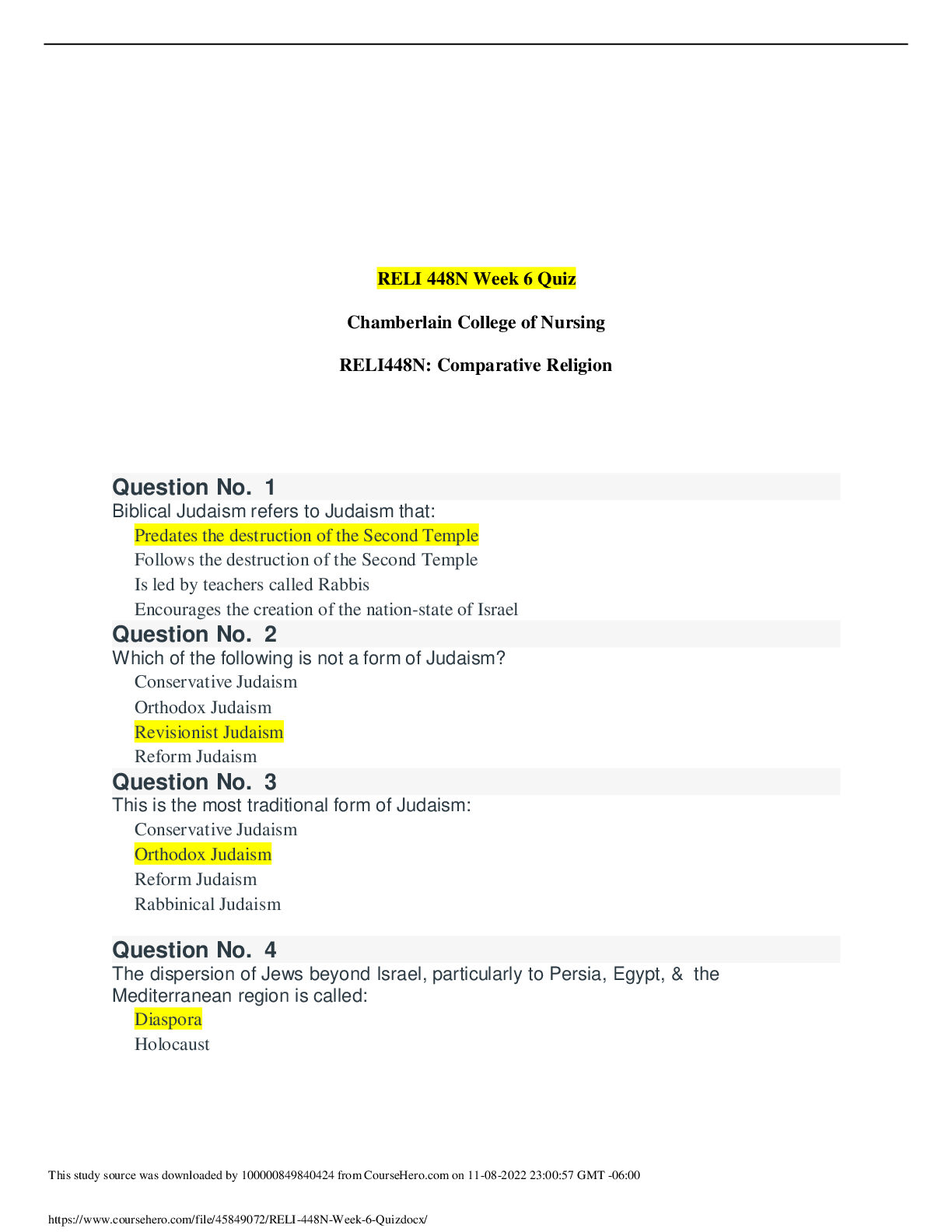
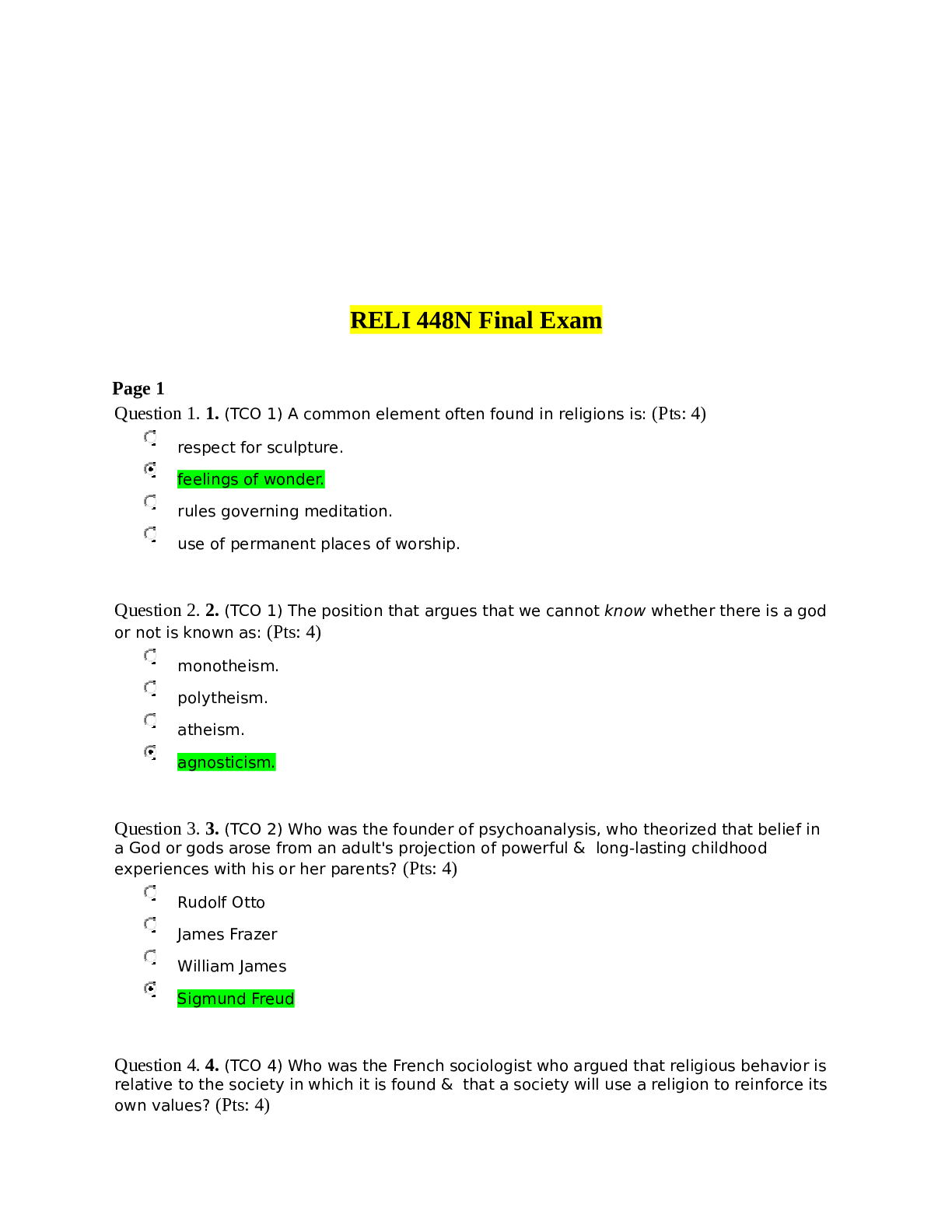
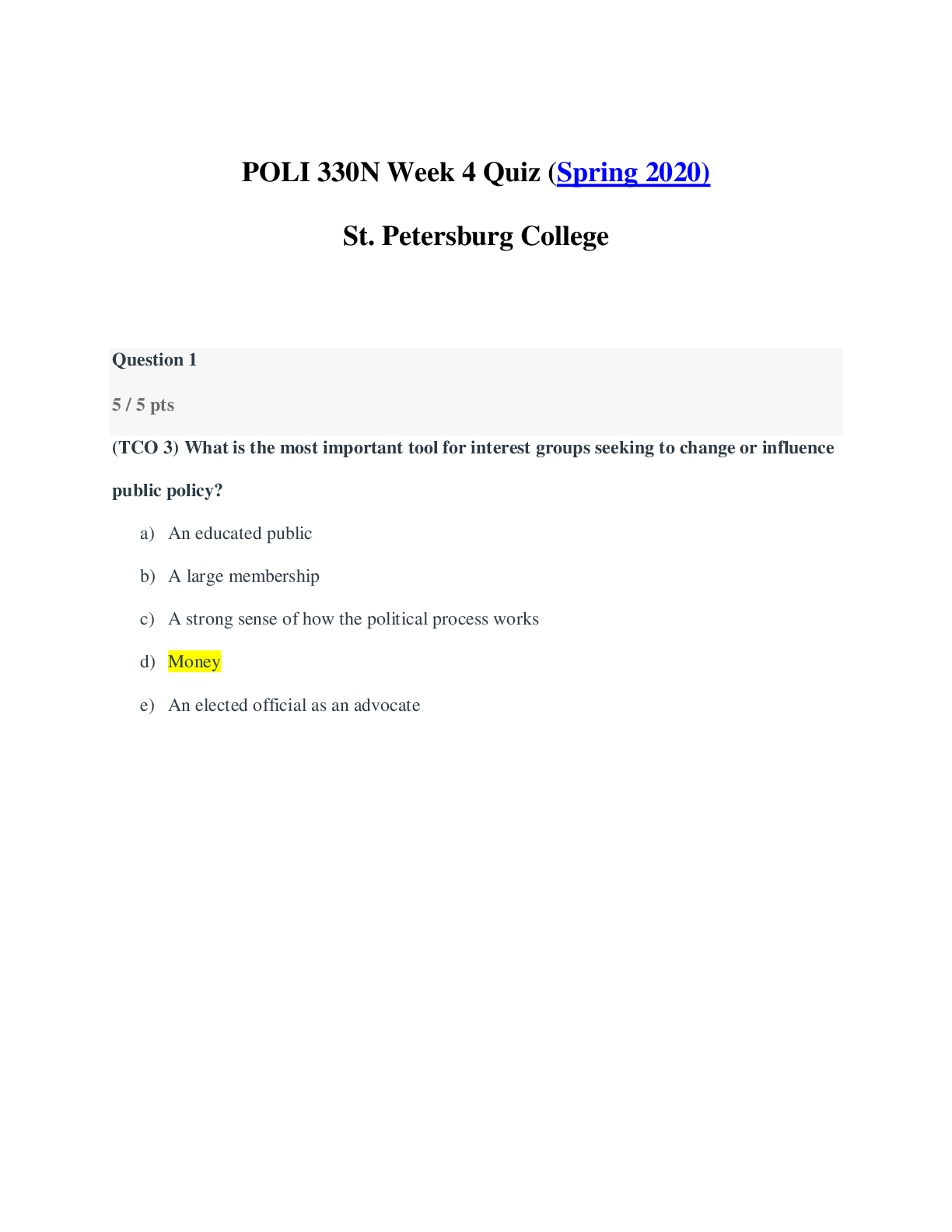
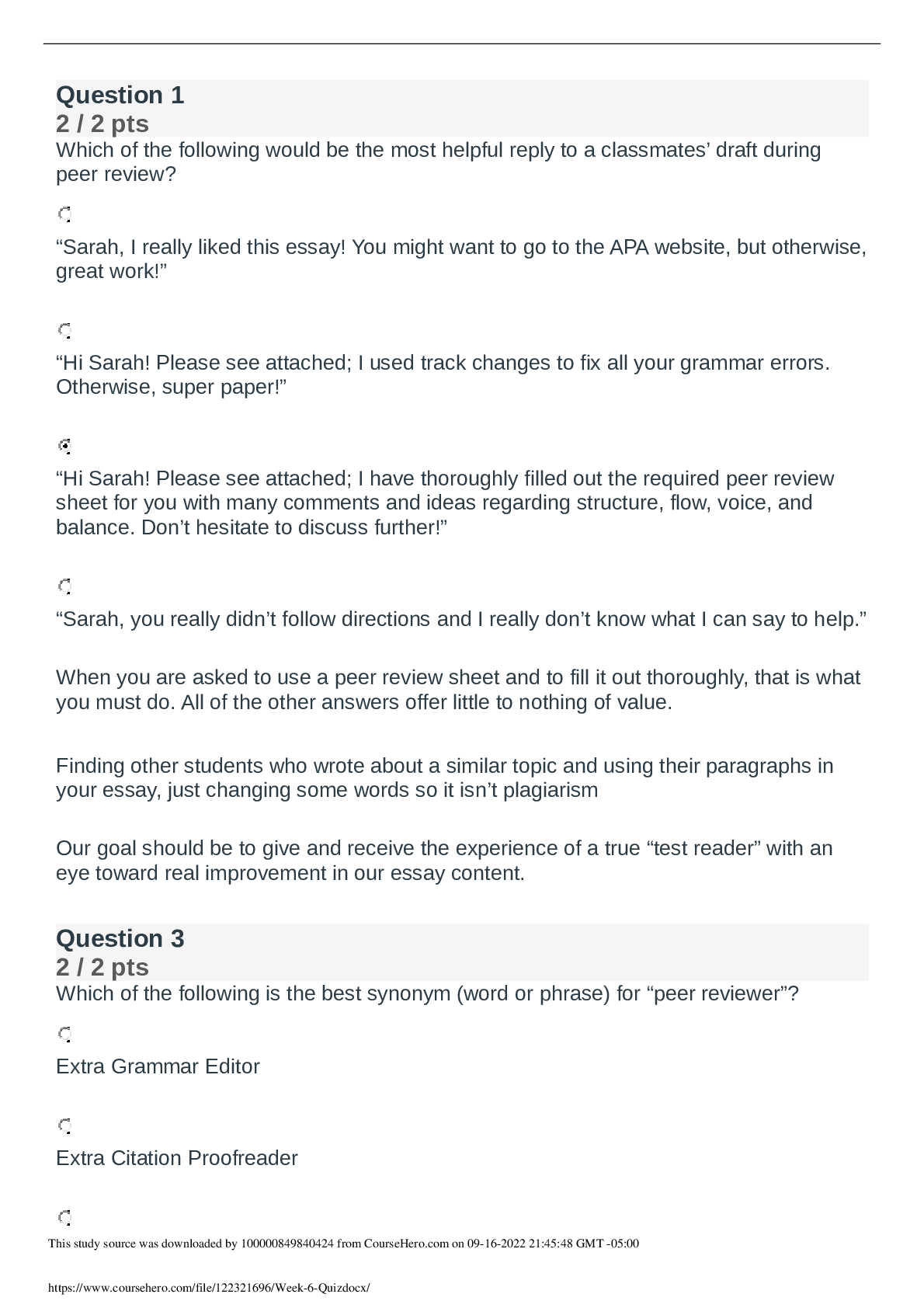
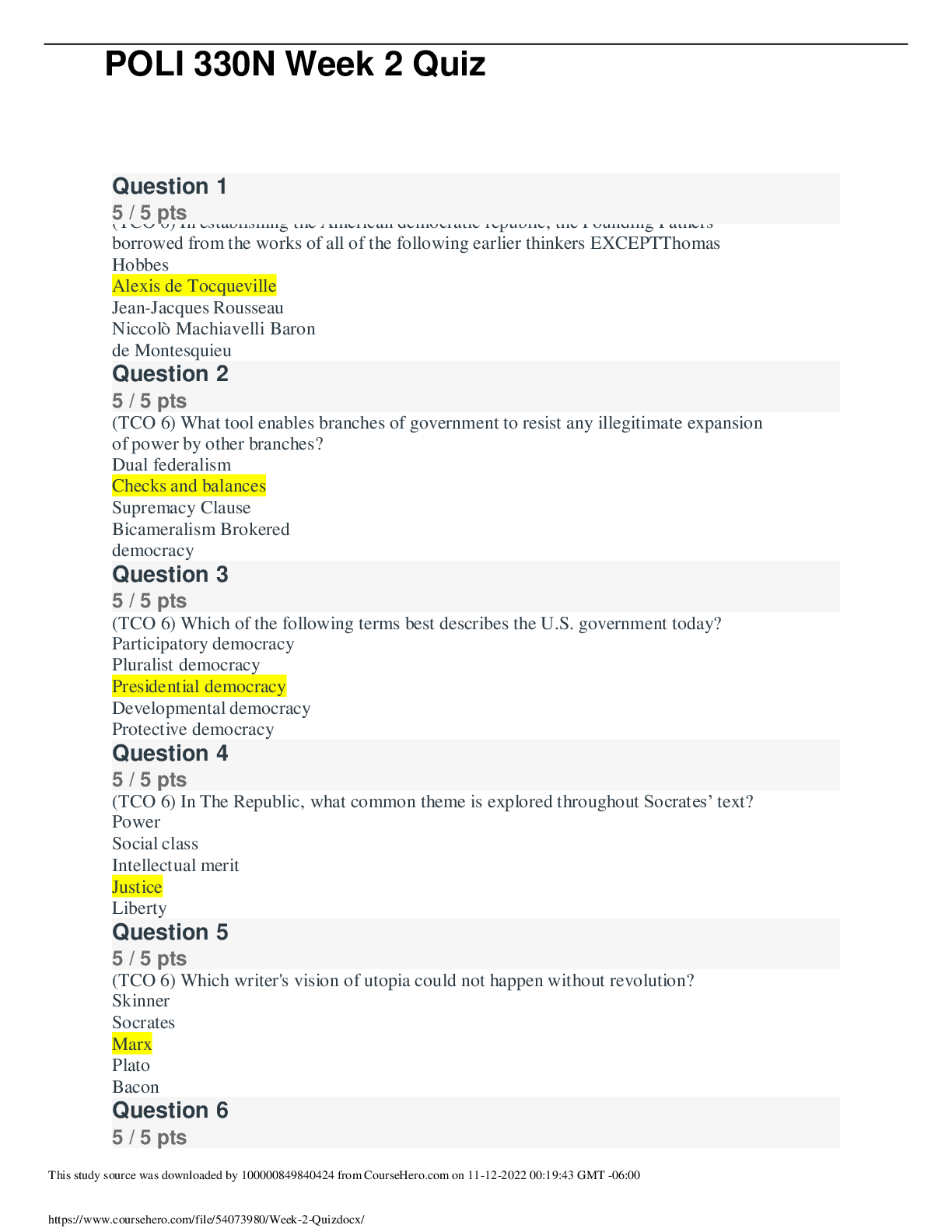

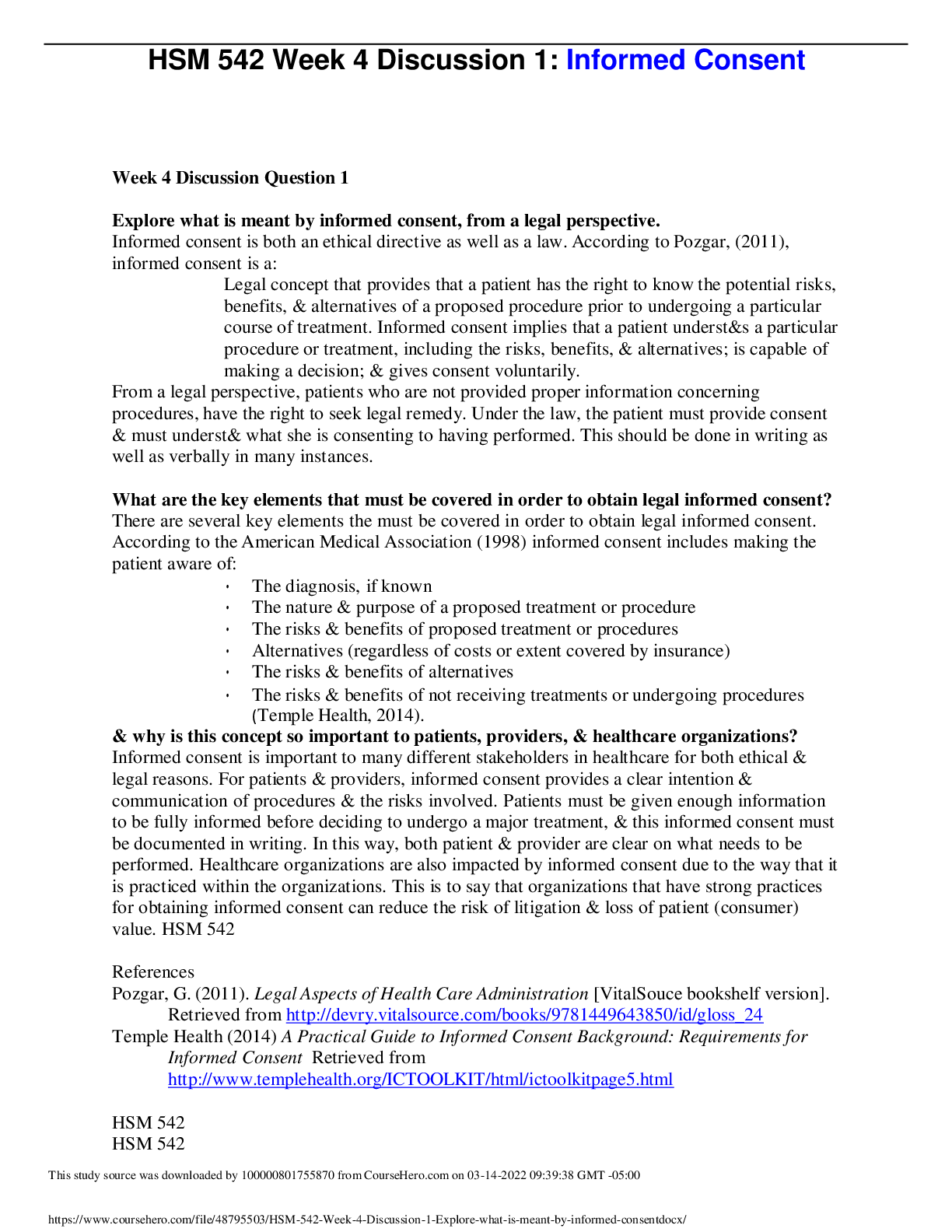
.png)
.png)


